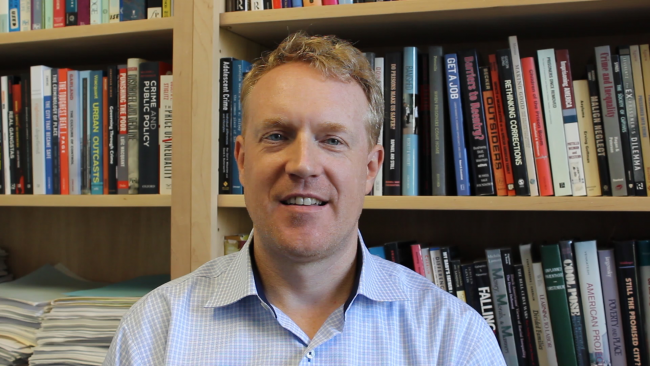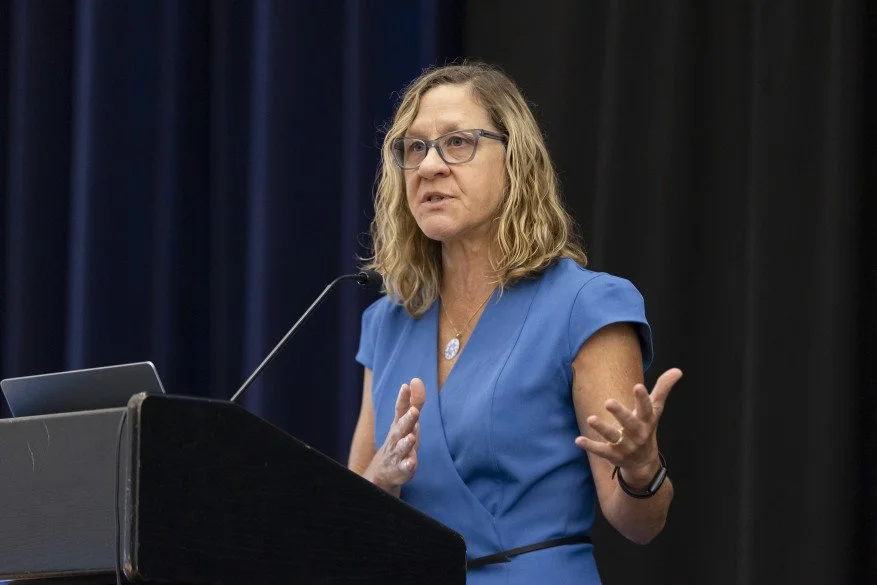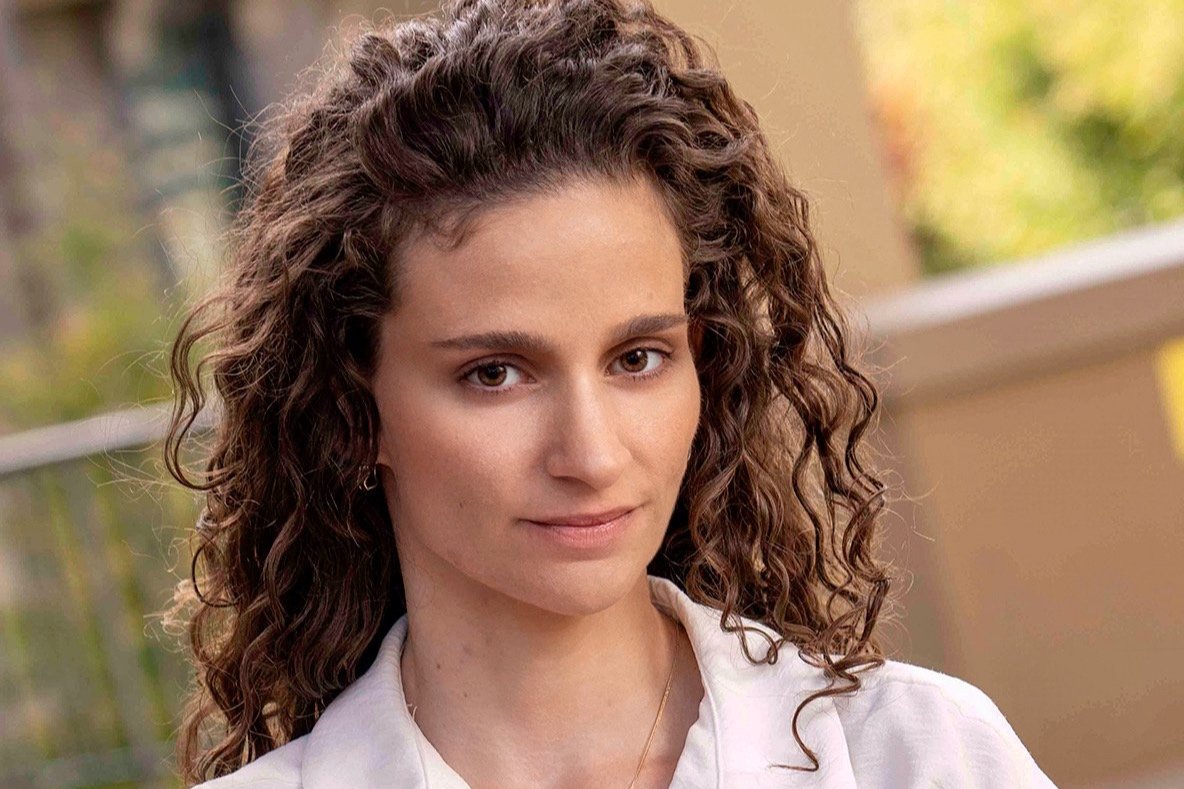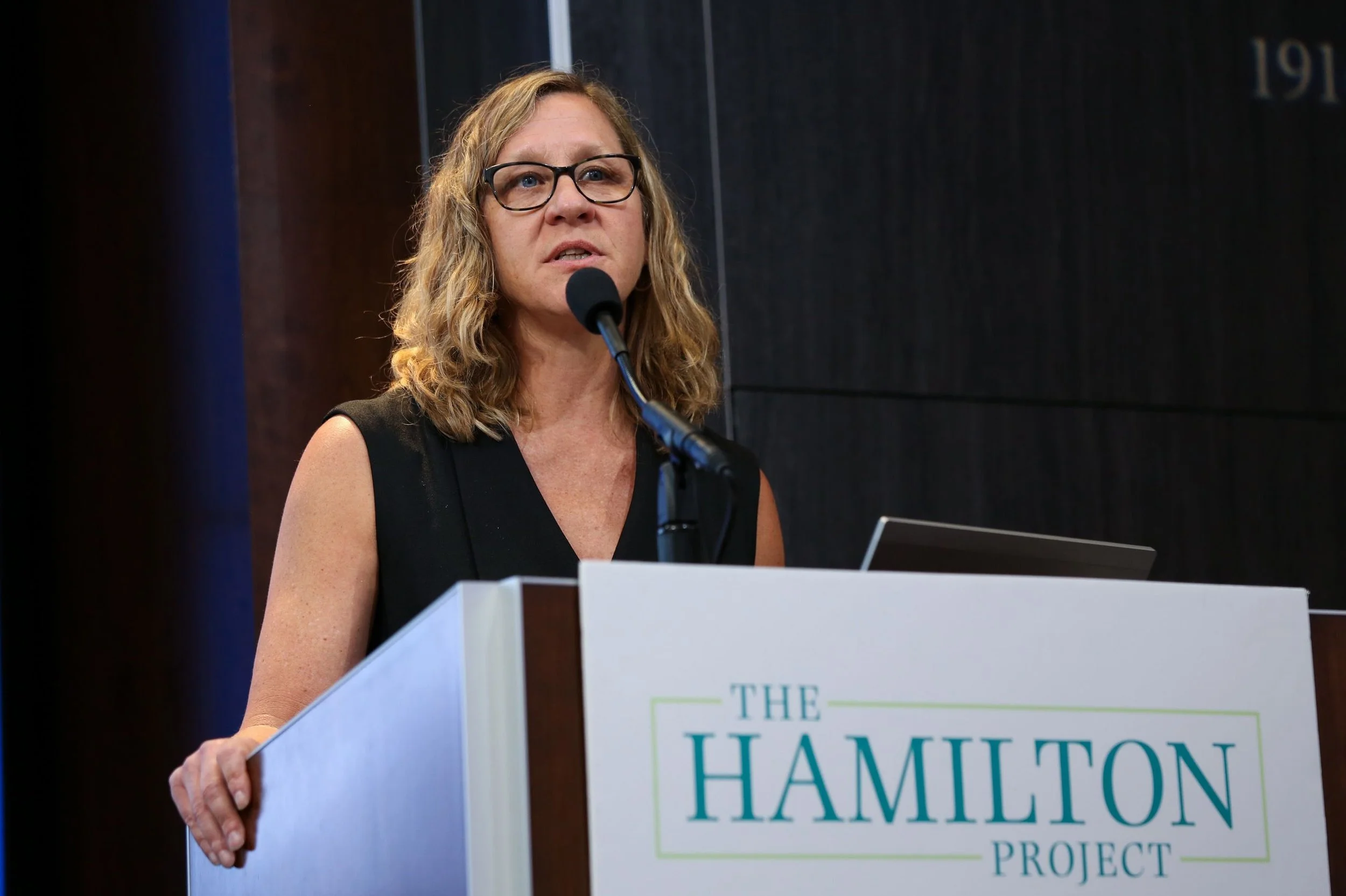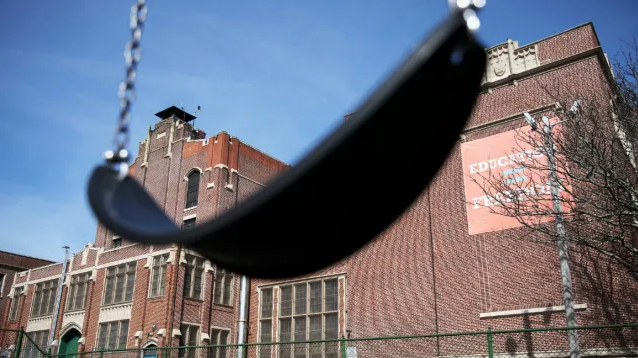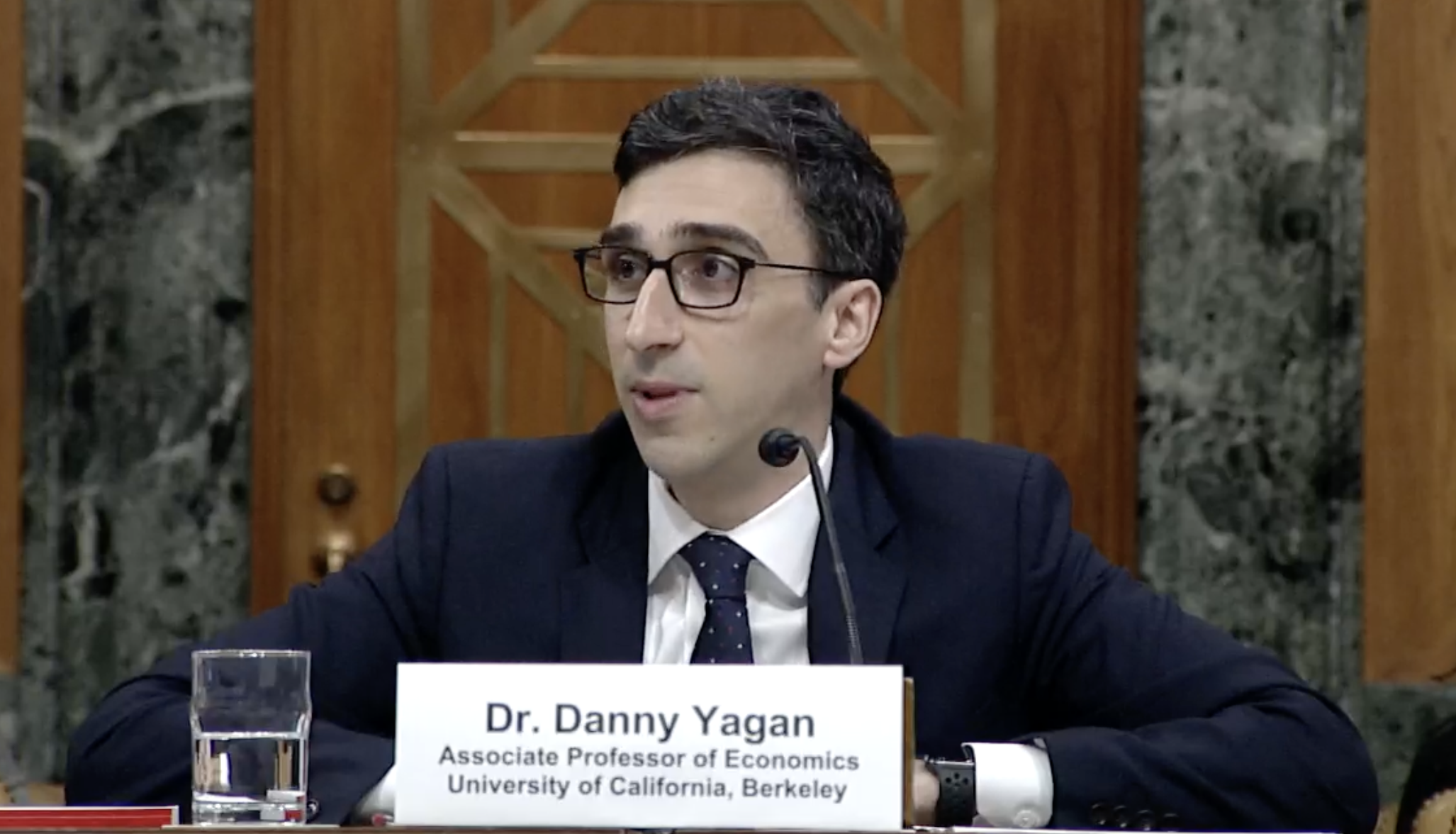Congratulations to Professor David Harding on his receipt of the 2024-2025 Chancellor's Award for Advancing Institutional Excellence and Equity! Harding, who chairs the Department of Sociology, has been instrumental in developing mentorship programs for formerly incarcerated scholars and trains early-career researchers in computational social science methods. Learn more about the award recipients.
Income, wealth, and environmental inequality in the US
A new article in CEPR highlights research from Reed Walker, Suvy Qin, + coauthors that leverages 40 years of administrative data to improve our understanding of the relationship between wealth and exposure to air pollution. The researchers find that, at all income levels, Black individuals are exposed to significantly higher levels of air pollution than white individuals. Learn more.
California's $20 fast-food minimum wage improves pay at small cost to consumers
Since its passage nearly a year ago, California’s fast-food minimum wage has increased wages for workers by 8-9%, finds a new analysis from Michael Reich + coauthors at UC Berkeley’s Center for Wage and Employment Dynamics. Check out this article from Axios to learn more about the study’s results.
Is the U.S. Civil Service really broken?
In this Q&A from the Haas School of Business, O-Lab faculty affiliate Guo Xu unpacks what research has to tell us about the US civil service and bureaucratic reform, and explains the implications of recent executive orders from the Trump administration. Read the full article.
Higher housing costs offset higher wages in big cities, says new study
Historically, moving to a city has been seen as a pathway to greater economic mobility – as cities offer more and often higher-paying jobs. Still, migration from low-income to high-income states has slowed in recent years. In Forbes, Adam Millsap unpacks research from Jesse Rothstein, David Card, and Moises Yi investigating why. Read the full article.
Climate change causes conflict: How policy can respond
In a column from CEPR, Marshall Burke, Solomon Hsiang, and Ted Miguel review literature on the relationship between conflict and climate. The authors highlight that, across contexts, studies consistently point to the social safety net as a tool to mitigate increases in violence induced by climate change by protecting household incomes from climate shocks. Read the full article.
5 Questions for Faculty: Professor Hilary Hoynes
In this installment of the Goldman School of Public Policy’s “Five Questions for Faculty” series, O-Lab Faculty Director Hilary Hoynes, Associate Dean and Chancellor’s Professor of Economics and Public Policy, discusses how the upcoming general election could effect the US social safety net. Read the article here.
New open-source volume on the effects of the 2021 Expanded Child Tax Credit
Newly released in the Annals of The American Academy of Political and Social Science, “Evaluating the Effects of the 2021 Expansion of the Child Tax Credit” brings together some of the strongest research on the 2021 CTC expansion. Edited by O-Lab Faculty Director Hilary Hoynes, Megan Curran of Center on Poverty and Social Policy at Columbia University, and Zachary Parolin, the volume frames the policy change in historical and international contexts, presents the expansion’s near-term impacts, and explores the potential, long-term effects of a permanently expanded credit, in addition to alternative policy designs. Explore the full volume here.
Hadar Avivi receives Award for Excellence in Research on Economic Inequality
On May 15, Hadar Avivi was awarded the inaugural Opportunity Lab/Stone Center Award for Excellence in Research on Economic Inequality at the Department of Economics’s Commencement Ceremony.
With the goal of encouraging, rigorous, quantitative research on economic inequality and social mobility, the prize honors a graduating PhD student who has produced an exceptional dissertation on economic inequality and opportunity. Read the award-winning paper here.
O-Lab Cash Assistance Webinar featured in Spotlight on Poverty
O-Lab’s May 23 webinar on cash assistance for children featured compelling remarks from Senator Michael Bennet, insightful conversations between policy practitioners, and exciting new evidence from researchers on how income support can support socioeconomic well-being for families with children. Check out this feature in Spotlight on Poverty to learn more.
Gabe Zucman advocates for a global minimum wealth tax in the New York Times
In response to wealth taxes on the national level, billionaires often respond to relocating to low-tax countries. In this New York Times opinion piece, Gabe Zucman makes the case for a global minimum tax to address wealth inequality.
Faculty Director Hilary Hoynes inducted into National Academy of Sciences
Congratulations to O-Lab Faculty Director Hilary Hoynes on her induction to the National Academy of Sciences! Hoynes was recognized for her important work advancing the evidence base around tax and transfer programs in the United States – and how these programs can generate long-term health and human capital benefits for recipient children.
Jesse Rothstein on rising mortgage rates and economic mobility in the New York Times
Rising interest rates have reduced mobility for households with mortgages by 14%, suggest new estimates from Jesse Rothstein and Jack Liebersohn – with no comparable decline for households without mortgages. How did we get here? Learn more in this article from the New York Times.
Pat Kline + Chris Walters on employment discrimination in the New York Times
From 2019-2021, Pat Kline and Chris Walters sent 80,000+ fake resumes to Fortune 500 companies, conveying racial and gender characteristics through distinctive applicant names to understand discriminatory hiring behavior. Explore this article from the New York Times to learn more about the study’s results.
Michael Reich on California’s minimum wage increase in CalMatters
The minimum wage for California’s fast food workers increased to $20/hour, with many critics predicting that firms will respond with mass layoffs and price increases. In this CalMatters article, Michael Reich unpacks the evidence against these predictions and explains how monopsony power has allowed firms to set artificially low wages.
Ziad Senate testifies to the Senate Finance Committee on AI in medicine
Ziad Obermeyer testified to the US Senate Finance Committee on the potential hazards of applying AI to medicine, encouraging the adoption of guardrails like independent algorithm evaluation to address issues like racial bias. Read more about the testimony in this Berkeley News article.
Gabe Zucman in Equitable Growth
Despite evidence demonstrating that tax enforcement is a highly cost-effective public investment, Congress’s recent bipartisan budget deal includes a $10 billion cut to the IRS’s tax enforcement budget. Learn more in this Equitable Growth article featuring research from Gabriel Zucman.
Enrico Moretti's work on US rust belt featured in Forbes
A new working paper from Enrico Moretti & coauthors explores the ability of former manufacturing hubs to recover from economic shocks, contrasting the US Rust Belt with manufacturing regions in other countries. Featured in Forbes, their findings suggest effects of deindustrialization are influenced by worker education levels. Read the full article here.
Hilary Hoynes on the Expanded Child Tax Credit in The Hill
Programs dedicated to alleviating child poverty have been shown to generate powerful social and economic benefits - in educational performance, income, and health outcomes - over a lifetime. Take a look at this important perspective from Faculty Director Hilary Hoynes and Rita Hamad in The Hill.
Danny Yagan testifies to Senate Budget Committee
On April 18th, Danny Yagan testified to the Senate Budget Committee. Yagan explained 2 simple ways the wealthy evade taxes, and advocated for raising effective tax rates on the rich through a minimum income tax to increase federal revenues. Watch the full hearing here, or read the testimony.
